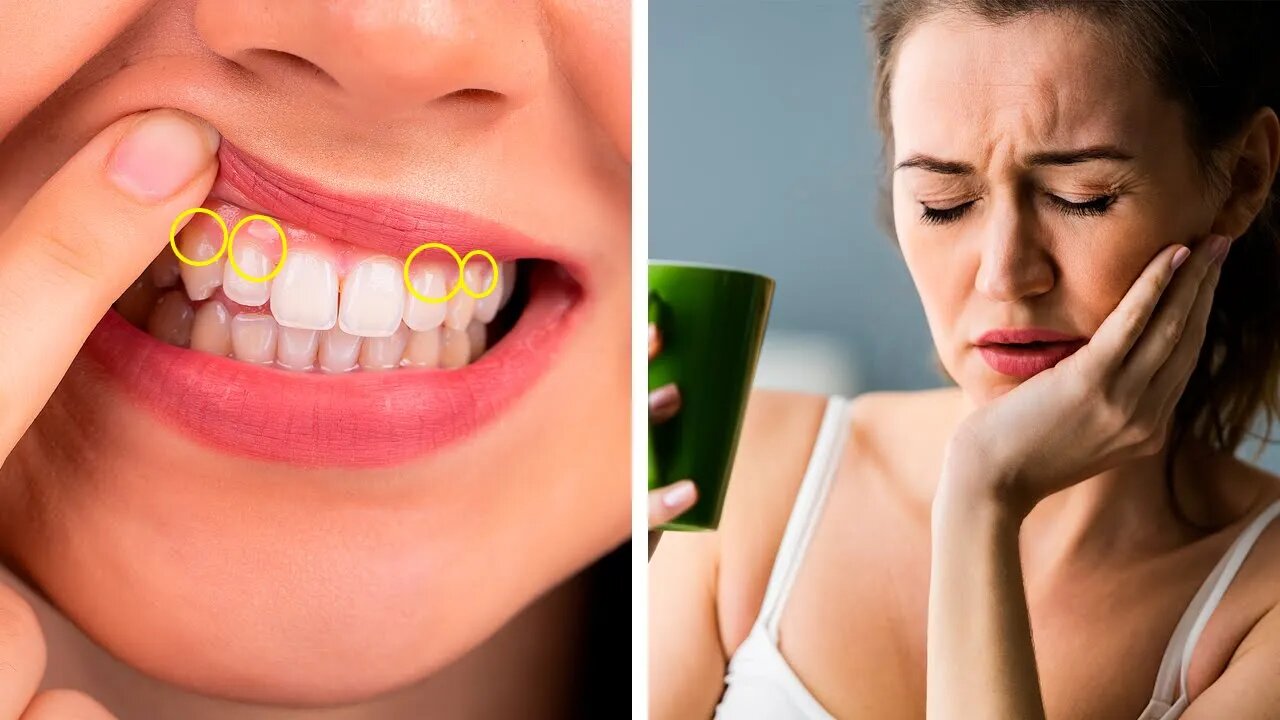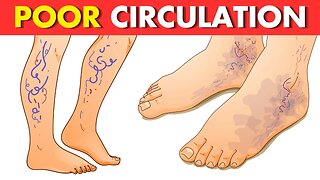Premium Only Content

4 Signs You're Brushing Your Teeth Too Hard
We have talked on the channel about how your smile and teeth affect your self-esteem and your general health.
In today's video, you will see some signs that you are brushing your teeth too hard and how to solve this issue.
Let's see now 4 signs that you are brushing your teeth wrong:
Your gums are receding
Each one of our teeth is protected by enamel, which can be harmed by excessive brushing. When the enamel is damaged, our gums can start receding.
The teeth close to the gums aren't shiny
When the gums start receding, the teeth underneath become yellow or darker.
Your teeth are too sensitive
Similar to receding gums, teeth can get sensitive when the enamel is removed.
Your toothbrush's bristles are worn
When the bristles seem to get worn down faster than usual, it might mean that you are brushing your teeth wrong.
Now that you know these 4 signs of wrong teeth-brushing, let's see 3 efficient ways of solving the issue:
Use a soft-bristle toothbrush
Try holding your toothbrush with only 3 fingers
Use a less abrasive toothpaste
0:00 Signs you're brushing your teeth too hard
0:20 Your gums are receding
0:37 The teeth close to the gums aren't shiny
0:53 Your teeth are too sensitive
1:18 Your toothbrush's bristles are worn
1:35 How to stop brushing too hard
----------------------------------------
Facebook: https://bit.ly/38BWbw3
Pinterest: https://bit.ly/2Irvwa6
Disclaimer: The materials and the information contained on Natural Cures channel are provided for general and educational purposes only and do not constitute any legal, medical or other professional advice on any subject matter. These statements have not been evaluated by the FDA and are not intended to diagnose, treat or cure any disease. Always seek the advice of your physician or other qualified health provider prior to starting any new diet or treatment and with any questions you may have regarding a medical condition. If you have or suspect that you have a medical problem, promptly contact your health care provider.
-
 4:50
4:50
Natural Cures
1 year ago $1.32 earned5 Warning Signs of Poor Circulation and How to Fix It
4.31K3 -
 0:12
0:12
Chandrians world
3 years agobrushing kitten teeth
14 -
 1:57:14
1:57:14
vivafrei
18 hours agoEp. 280: RFK Jr. Senate Hearing! Activist Fed Judges! Epstein Victims DEBACLE! & MORE! Viva & Barnes
53.7K60 -
 LIVE
LIVE
Major League Fishing
3 days agoLIVE Tackle Warehouse Invitationals Championship, Day 3
299 watching -
 LIVE
LIVE
GritsGG
1 hour agoTop 250 Ranked Grind! Dubulars!🫡
183 watching -
 LIVE
LIVE
TheManaLord Plays
5 hours agoMANA SUMMIT - DAY 2 ($10,200+) | BANNED PLAYER SMASH MELEE INVITATIONAL
155 watching -
 5:31
5:31
WhaddoYouMeme
1 day ago $2.54 earned$8,000/hr Dating Coach Loses Everything (Sadia Kahn)
9.21K6 -
 LIVE
LIVE
Ouhel
4 hours agoSunday | CoD 4 | CAMPAIGN PLAYTHROUGH | Nostalgia Kick
56 watching -
 13:14
13:14
DEADBUGsays
1 day agoThe Murder of Veronica Kaye | Cold#11
5.81K4 -
 14:53
14:53
Adam Does Movies
18 hours ago $0.92 earnedIs There Any Saving Jurassic World?
5.82K2